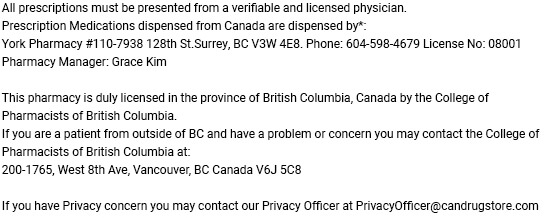Description
Indications
Phenytoin belongs to a class of drugs called anticonvulsants and is prescribed to manage specific types of seizures. It is also used to treat and prevent seizures that may occur during or after surgery on the brain or nervous system. Phenytoin functions by reducing abnormal electrical activity in the brain.
Uses and Dosage
Follow your doctor’s instructions and take this medication orally, usually once a day, or as divided doses. If you experience stomach discomfort, you may take it with food. Consume a full glass (8 ounces or 240 milliliters) of water, unless directed otherwise.
Do not crush or open the capsules, and discard any discolored ones.
For optimal results, use this medication regularly and take all doses at the same time(s) each day to maintain a consistent level in your body. Your medical condition and response to treatment will determine the dosage.
Antacids can hinder the absorption of phenytoin. Avoid using these products concurrently with your medication. If you must these products, wait at least one hour before and after your phenytoin dose, or follow your doctor’s guidance.
Do not discontinue this medication without consulting your doctor, as abruptly stopping it may worsen your seizures. Your doctor may reduce your dosage gradually.
Inform your doctor if your condition does not improve or deteriorates.
Side Effects
Some side effects may occur that usually do not need medical attention:
- difficulty falling asleep or staying asleep
- uncontrollable eye movements
- abnormal body movements
- loss of coordination
- confusion
- slurred speech
- headache
- changes in your sense of taste
- constipation
- unwanted hair growth
- coarsening of facial features
- enlargement of lips
- overgrowth of gums
- pain or curving of the penis
Inform your healthcare provider immediately if you experience any serious side effects:
- swollen glands
- blisters
- nausea
- vomiting
- yellowing of the skin or eyes
- pain in upper right part of the stomach
- excessive tiredness
- unusual bruising or bleeding
- small red or purple spots on skin
- loss of appetite
- flu-like symptoms
- fever, sore throat, rash, mouth ulcers, or easy bruising, or facial swelling
- dizziness, tiredness, irregular heartbeat, or chest pain
- shortness of breath
- hives
Caution
Before taking phenytoin, inform your doctor or pharmacist if you have any allergies to it, other anti-seizure medications, or other substances. This product may contain inactive ingredients that can cause allergic reactions or other problems.
Before using this medication, let your doctor or pharmacist know about your medical history, particularly your alcohol consumption, certain blood conditions such as porphyria, diabetes, liver disease, lupus, and megaloblastic anemia caused by a folate or vitamin B-12 deficiency.
This medication may cause drowsiness or dizziness. Alcohol and marijuana can increase these effects. Do not operate machinery or drive until you can do so safely.
If you are scheduled for surgery or any procedure that inhibits you from taking medication orally, inform your doctor that you are taking phenytoin.
For individuals with diabetes, this drug may elevate your blood sugar levels. Monitor your glucose levels frequently as directed by your doctor and immediately report any unusual results. Your medication, exercise regimen, or diet may need adjustment.
Your doctor may recommend vitamin D supplements to prevent osteomalacia, a weakening of the bones.
During pregnancy, only use this medication if it is essential, as it may harm the unborn baby. Untreated seizures are a severe condition that can harm both the mother and the baby, so do not discontinue use without consulting your doctor. If you are pregnant, planning a pregnancy, or suspect you are pregnant, speak with your doctor about the advantages and disadvantages of using this medication during pregnancy.
Phenytoin is secreted in breast milk. Consult your doctor before breastfeeding.
Form and Strength
Dilantin is available in the following forms and strengths:
-
Dilantin extended-release capsule:
- 30mg
- 100mg
-
phenytoin tablet:
- 100mg
FAQ
How long does it take to get used to Dilantin?
It takes about 7 to 10 days for the levels of phenytoin in your body to stabilize on a normal starting dose.
Is Dilantin used for anything other than seizures?
Dilantin uses also include treating neuropathic pain and irregular heartbeat. In some cases, Dilantin may also be used for the treatment of mood disorders.
Resources
- https://www.goodrx.com/phenytoin/what-is
- https://www.sunshinebehavioralhealth.com/blog/dilantin-abuse-info/#:~:text=It%27s%20primarily%20used%20to%20prevent,the%20treatment%20of%20mood%20disorders
- https://www.mayoclinic.org/drugs-supplements/phenytoin-oral-route/side-effects/drg-20072875?p=1
- https://medlineplus.gov/druginfo/meds/a682022.html
- https://www.webmd.com/drugs/2/drug-4157/dilantin-oral/details
- https://www.drugs.com/dilantin.html


 Prescription Required
Prescription Required  Formulation :
Formulation : 





